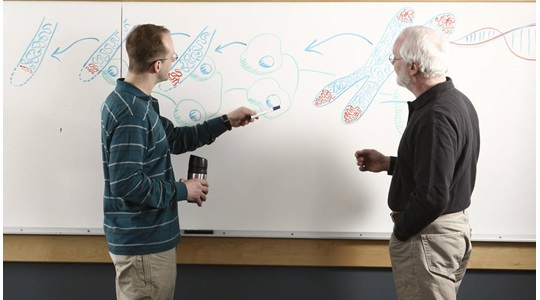David E. Harrison, Ph.D.
Professor
Researches the genetics of aging and lifespan, seeking to understand the basic mechanisms of aging, and adult stem cells, with the goal of delaying normal aging processes.
The Harrison research group investigates aging in mouse models, focusing on processes that have the potential to retard aging and prolong health. For example, one line of research investigates mutations that reduce IGF-1 and insulin function. Such mutations can increase life span and delay certain aspects of aging, especially development of cancer. We also demonstrated through an Intervention Testing Program (ITP) that rapamycin, an inhibitor of the mTOR pathway, extends median and maximal lifespan in mice. We are continuing our ITP research.
Our other focus area is on hematopoietic stem cells (HSCs) and other adult stem cells, which constantly proliferate and differentiate to maintain tissue functions throughout life. If aging exhausts the function of adult stem cells, the balance between damage and repair is disrupted and tissue functions become defective. Our group has found that genetic mechanisms protect hematopoietic stem cells from exhaustion in some mouse strains, and we are working to define the specific mechanisms. Our long-term goal is to promote healthful aging in humans, either by delaying normal aging processes or by minimizing or eliminating diseases of aging.
Education and experience
Education
Stanford University
Postdoctoral fellow, physiological genetics
1969-1970
Adv: Dr. E.S. Russell
Stanford University
Ph.D., inorganic chemistry
1969
Adv: Dr. Henry Taube
Bates College
B.S., chemistry
1964
Experience
The Jackson Laboratory
Professor
1981-present
The Jackson Laboratory
Director of training
1990-1999
The Jackson Laboratory
Associate Professor
1973-1981
The Jackson Laboratory
Assistant Professor
1970-1973
